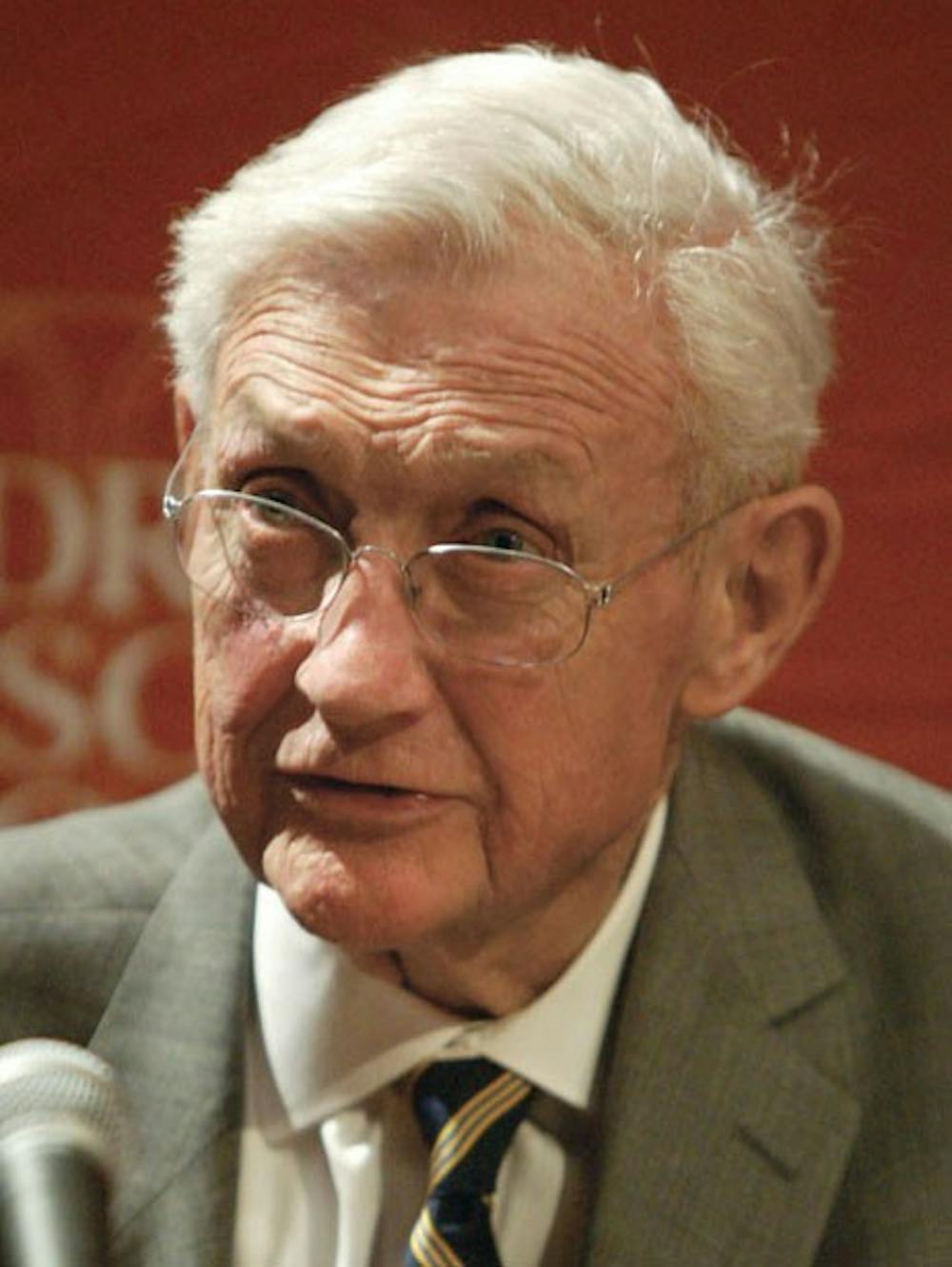John Doar ’44, a prominent civil rights lawyer who fought for the rights of African-Americans in the 1960s and who received the Presidential Medal of Freedom for his efforts in 2012, died in New York, N.Y., on Tuesday. He was 92.
The cause of death was congestive heart failure, Burke Doar ’86, his son, said.
Doar served as a civil rights lawyer for the Department of Justice during the Eisenhower, Kennedy and Johnson administrations, eventually rising to Assistant Attorney General for Civil Rights in 1964.
In his seven years at the department, Doar challenged discriminatory policies against African-Americans in the South, notably contesting limited voting rights and seeking access for African-Americans to state universities.
“He loved his country and he wanted to make it better,” his son Robert Doar ’83 said in a phone interview, adding that he was a hard worker, very attentive to detail and had a great sense of humor despite his no-nonsense character in court. “He had a big heart.”
In 1962, Doar accompanied James Meredith, the first African-American student at the University of Mississippi, onto campus amid violent riots, helping the student move into his dormitory despite protests from the university’s president.
He also led prosecutions of the Ku Klux Klan and successfully prosecuted the killers of three civil rights workers.

When a protest broke out following the murder of civil rights workerMedgar Evers, Doar convinced the protesters to retreat from armed policemen, preventing a potentially deadly confrontation.
“John Doar [was] one of the bravest American lawyers of his or any era,” President Barack Obama said in a statement, adding that Doar laid the groundwork for the Civil Rights Act of 1964 and the Voting Rights Act of 1965. “Time and time again, John put his life on the line to make real our country’s promise of equal rights for all.”
After serving in the Civil Rights Division, Doar acted as chief counsel to the United States House Committee on the Judiciary during the Watergate scandal, a break-in at the Democratic National Committee headquarters involving members of the Nixon administration.
A lifelong Republican, Doar drafted articles of impeachment against President Richard Nixon in 1973 and 1974. His son said they were living in Brooklyn at the time, and that his father got up and left for Washington after receiving a phone call when his sons were aged 9 and 11.

“He worked 24 hours a day for the next seven months,” Robert Doar said. Along with his brother Burke Doar, Robert Doar would visit his father in Washington during school breaks, where they were introduced to members of the staff and were able to attend an important hearing.
“For Dad, it was about conveying a sense of history and public service to us,” Robert Doar said.
Robert Doar isa former commissioner of theNew York City Human Resources Administration and of the New York State Office of Temporary and Disability Assistance. He said his father's work had a strong influence on both him and his siblings, Burke Doar, Michael Doar ’78 and Gael Doar.
“Dad was both a great public man but also a great father and a great grandfather,” Robert said. “That combination of family and country was a great example.”
Doar was born in Minneapolis and grew up in New Richmond, Wis. He served in the US Army Air Forces during World War II before attending the University as an undergraduate and attending law school at the University of California at Berkeley. He eventually started his own law firm devoted mainly to civil law, Doar, Rieck, Kaley, & Mack, where he continued to serve as senior counsel into his 80s.
Doar majored in the Woodrow Wilson School at the University, was on the basketball team and a member of the landscaping committee, Robert Doar said. John Doar loved trees and took great interest in improving the University's campus appearance, Robert Doar said, something he remembers every time he strolls through campus.
Class of 1944 president Herbert Hobler said in a phone interview that Doar was one of the most outstanding people he had ever met, adding that he was a great friend to many. Hobler and Doar played on the basketball team together, and Doar served on the class board for years, Hobler said.
“I’ve often called him a great American,” Hobler said, describing him as “Lincoln-esque” and a very kind, soft-spoken person. Hobler also noted that Doar, a Republican, served under both Republican and Democratic administrations.
“His life was all about service for other people,” Hobler said. “I’ve never met somebody I admired more than this man.”
Doar took a controversial stand in support of keeping the Reserve Officers' Training Corps in the wake of the Vietnam War, Robert Doar said, when universities were criticized for keeping a recruiting program on campus. Other schools, such as Harvard, eliminated the program, a decision Robert Doar said they came to regret before allowing the program back.
“Princeton never made that mistake,” Robert Doar said.
Doar later became a University trustee, a visiting scholar and a frequent guest lecturer, Robert Doar said. As an undergraduate, he played basketball and was president of the Tiger Inn.
“He loved Princeton,” Robert said, adding that he attended athletic events and his 70th reunion last spring. “He was a leading Princetonian.”








